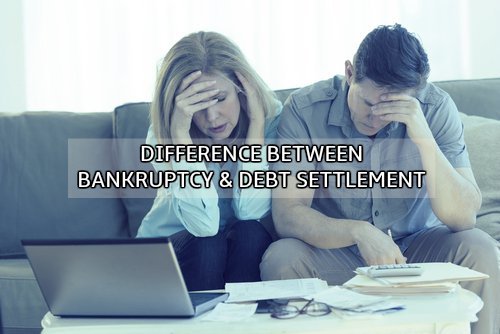About 80% of Americans are in debt, which is not surprising considering that 43% of American families spend more than they earn. The average household debt statistics for 2015 are staggering. The average credit card debt for households that have debt amounts to more than $15,000.00. The average interest rate on credit cards is almost 15%. Miss a payment and that interest rate can get much higher. The average mortgage debt stands at around $149,000.00, and the average student loan per household is more than $34,000.00. With all of this debt crushing down, my clients often start their search for relief by looking at debt settlement companies. Debt settlement is a process in which a debt settlement company negotiates on your behalf with your creditors and helps you get rid of your debt without you having to pay the full amount due. However, it is not always as cut and dried as that. Before considering debt settlement options, you need to consider the following.
Debt Settlement is Costly
You think that you are getting away with paying only a fraction of your debts, but the reality is different. Most companies charge an initial fee and some also include a monthly service fee. Some also either levy an ongoing charge based upon the amount of debt. Further, most times you will pay at a minimum the principal balance due on your debts. Many just reduce interest rates. A Chapter 7 bankruptcy may eliminate your need to pay back anything on most types of debts for far less. A Chapter 13 can use powerful laws to reorganize debts and force credit cards, medical bills, and many other types of debts to take what the law says you can afford or what you have to pay. Many Chapter 13 bankruptcy cases pay out only pennies on the dollar on these types of claims before the balances are discharged.
Debt Settlement Does Not Assure Debt Discharge Immediately
Most people think that once they have started making payments to the debt settlement company, it is going towards paying off their debts. Typically though, debt companies only withdraw their monthly service fees from the account they have access to. Your creditors get nothing for months, sometimes even years. I have seen many clients over the years come into file a bankruptcy due to collection efforts while they were in an active debt settlement program due to lawsuits or other collection efforts by creditors who were not yet getting paid by debt settlement companies.
Debt Settlement Does Not Protect You from Creditors
Unlike bankruptcy, debt settlement is not supported by specific laws. When you file for bankruptcy, creditors are required, by powerful laws, to stop calling, suing, garnishing or doing anything else to collect debt. Debt settlement does not protect the debtor from such harassment. Creditors will continue to try to collect and in many cases will go on to sue the debtor. This is one reason why the failure rate for debt settlement is high. A report issued by the United States Government Accountability Office estimated that success rates for debt-settlement are in the single digits. In other words, less than 10% of people actually successfully complete their plan. The rest end up dropping out of the settlement plan and going on to file for bankruptcy anyway.
Debt Settlement Affects Credit Report Too
Both bankruptcy and debt settlement have a negative impact on your credit score. The big difference however is that you can start rebuilding your credit score sooner with bankruptcy. With debt settlement typically taking up to 60 months to settle, a debtor generally has to wait for 5 to 6 years to start rebuilding credit. On the other hand, credit rebuilding can start right away if you file for bankruptcy.
Debt Settlement Could Lead to More Tax
Debt settlement, in some cases may reduce the principal balance of the debt, but the forgiven amount is taxable as income. The IRS will consider the canceled debt as income. If you end up owing tax on the forgiven debt and cannot pay it, tax liens or levies against your bank accounts or wages may occur.
Call Indianapolis Bankruptcy Lawyers – Sawin & Shea – 317-759-1483
Debt settlement has many issues to consider before taking that path. In most cases filing for bankruptcy can be a much better option. Bankruptcy helps give you financial freedom by allowing you to deal with all your creditors in one go. If you are in financial difficulty, give our Indiana bankruptcy lawyers a call. We will provide you with a free evaluation of your case and educate you on all the options you have as you look to a debt free fresh start in life.



